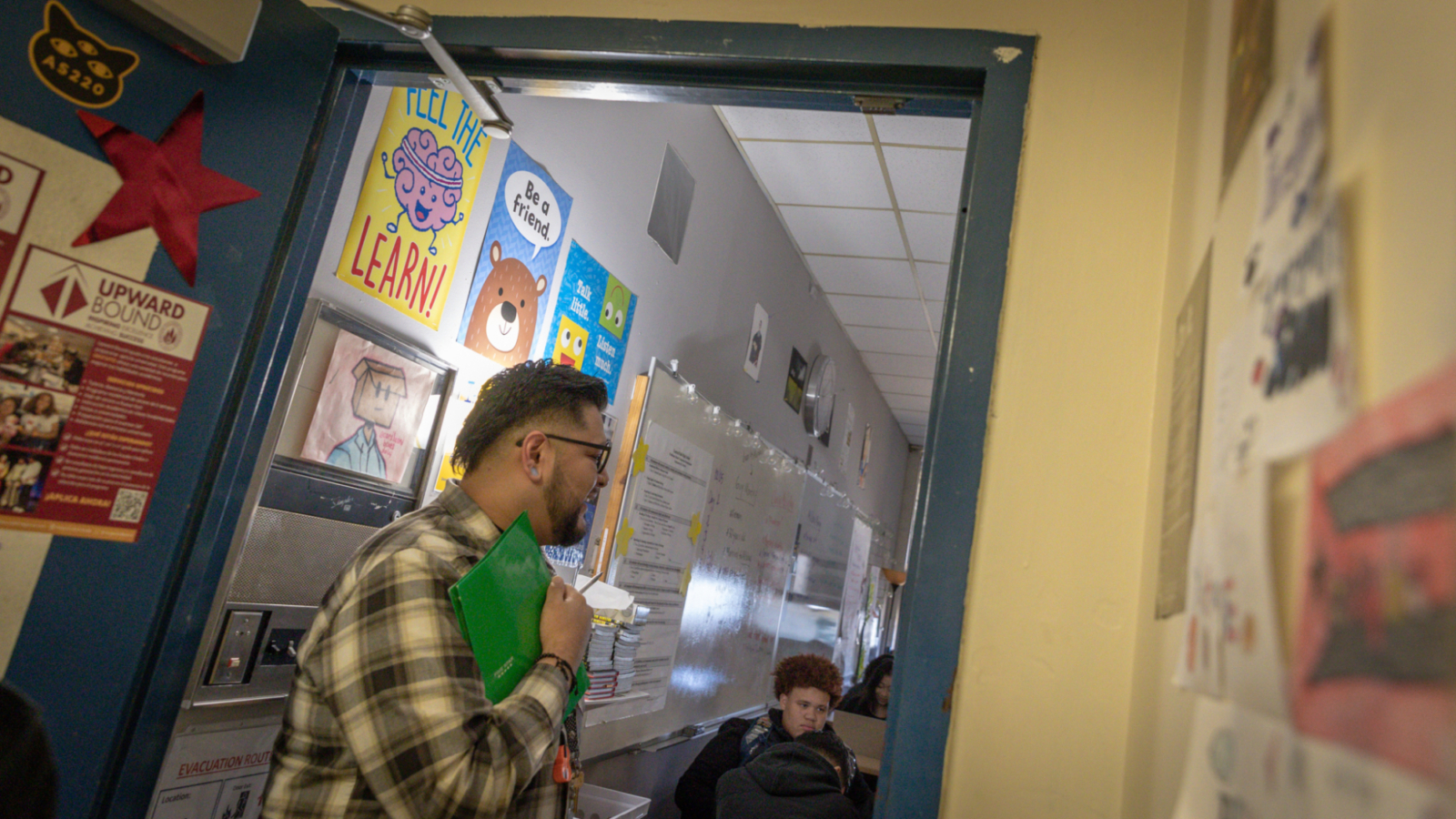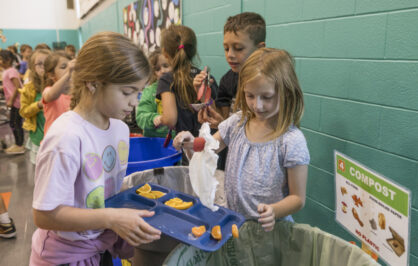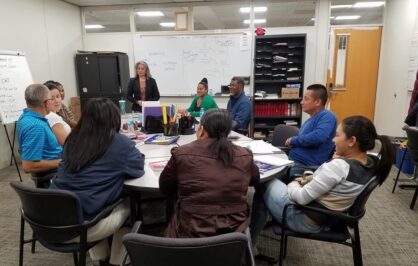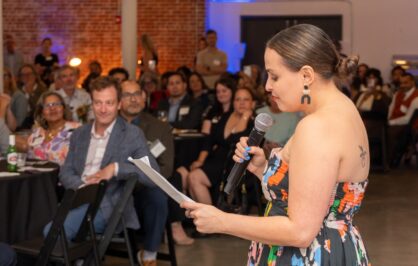
Grants & Scholarships
Teachers from the community, for the community
In 2023, the Feinstein School of Education and Human Development at Rhode Island College received a sizable two-year financial commitment from the Rhode Island Foundation with aligned funding added from Gilbane Family Foundation to partner with three urban core districts: Central Falls, Pawtucket, and Providence. Shortly thereafter, Davies Career & Technical High School and Woonsocket were added.
On an early December morning last year, about a dozen teachers from different schools throughout the state gathered at Central Falls High School where they were greeted by Principal Robert McCarthy and Assistant Principal Cristina Sanchez (who also serves as the career and technical education director) before taking a tour of the school led by CFHS teachers Emmanuel Ramos and Beth Toney.
“I appreciate all of you for making efforts to improve our workforce. Like most schools, we have problems finding and keeping a robust teaching pool,” says Bob McCarthy. “Manny—a graduate of CFHS—came back to our school to teach—that’s what we want.
The group consists of two-year fellows from the Grow Your Own (GYO) Equity Fellows Program at Rhode Island College (RIC), led by faculty Co-Directors Dr. Erin L. Papa and Dr. Tommy Ender. They have already or will be visiting Mount Pleasant High School in Providence, Shea in Pawtucket, Davies, and Woonsocket Career & Technical Center. Armed with clipboards, as they tour any school, they ask questions and make notes of what they observe that could be incorporated or adapted to the GYO program in their school.
In 2023, the Feinstein School of Education and Human Development (FSEHD) at Rhode Island College (RIC) received a sizable two-year financial commitment from the Rhode Island Foundation with aligned funding added from Gilbane Family Foundation—almost $300,000—to partner with three urban core districts: Central Falls, Pawtucket, and Providence. Shortly thereafter, Davies Career & Technical High School and Woonsocket were added. All are districts with student populations greater than 50% students of color and a growing number of multilingual students.
The ultimate goal of the fellowship program is to train GYO fellows to prepare high school students in these urban districts for college and a career in teaching. Over the past few decades, concerns about teacher-staffing shortages have plagued us in Rhode Island—it’s a national dilemma as well.
Grow Your Own (GYO) is a nationwide teacher preparation strategy focused on developing and retaining teachers from the local community. GYO is often used to address teacher shortages and increase the diversity of the teacher workforce.
- NewAmerica.org
Diversifying the teaching workforce has been a strategy of the Rhode Island Foundation’s educational success portfolio since 2017. At that time efforts in this area were often duplicated and/or uncoordinated. This led to a series of convenings with stakeholders, hosted by the Foundation, to explore how we can use our collective power to diversify the educator workforce in our state. The Foundation approached the convenings with the following theory: If we tap into stakeholders, break down silos, and build consensus, we can build diverse and sustainable teaching pipelines.
Research has shown benefits, particularly for students of color, when students are matched with a teacher of the same race. Low-income Black students, for example, who have at least one Black teacher in elementary school are 29% less likely to drop out of high school, according to a Johns Hopkins report. Research also suggests that homegrown teachers have higher rates of retention, which ultimately benefits schools and students.
Some of the blame can be placed on systems that create roadblocks to professional entry—there are many people working in the education arena who want to become teachers but do not see a clear track to achieving their goal. By focusing on the needs of candidates, providing financial support, paid work experience, and mentoring, GYO programs remove barriers that have kept some individuals from being able to access teacher preparation programs.
At Central Falls High School, students who commit to a CTE (Career and Tech Education) pathway or a teaching pathway can graduate high school with nine college credits under their belt—applicable at RIC or URI—by participating in an established curriculum that is part of their regular school day. Introduction to Teaching and Learning, Teaching for Social Justice, Writing to Inform & Explain are examples of these courses.
Investments in programs such as GYO are moving us closer to successful trajectories into teaching while recruiting high proportions of racially diverse teachers. These programs take a variety of forms: some are aimed at attracting high school students into the teaching profession while others provide opportunities for paraeducators, substitutes, and local community members to become licensed educators.
The GYO Equity Fellows Program will allow us to continue our focus on equity — intentionally strengthening existing and emerging pathways that will grow the state’s BIPOC and multilingual teacher population.
“While education should not be purely in support of a job someday —particularly at this early age (they can sign up in 10th grade), you want them to have a well-rounded education— it is extremely valuable to give urban-educated kids a set of goals and plans,” says Emmanuel Ramos.



